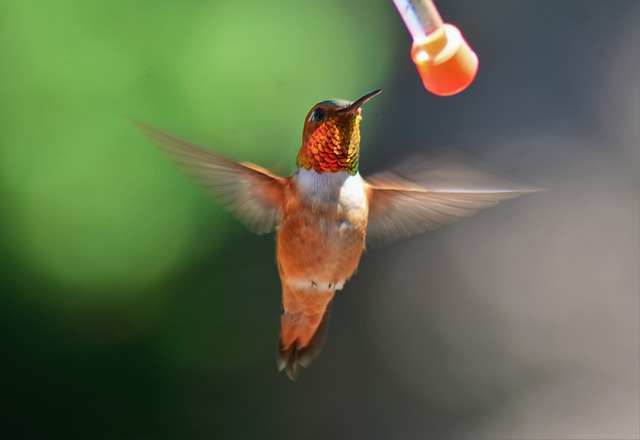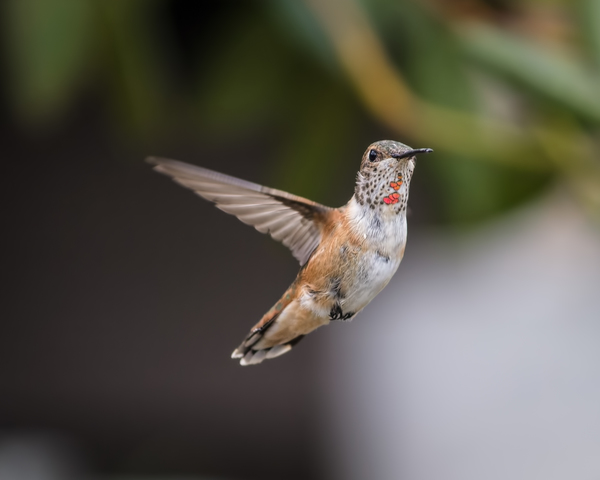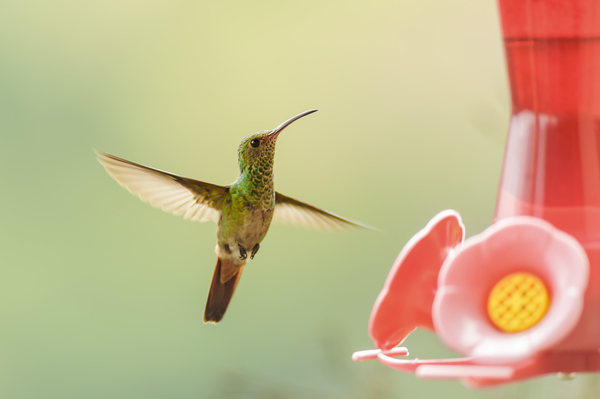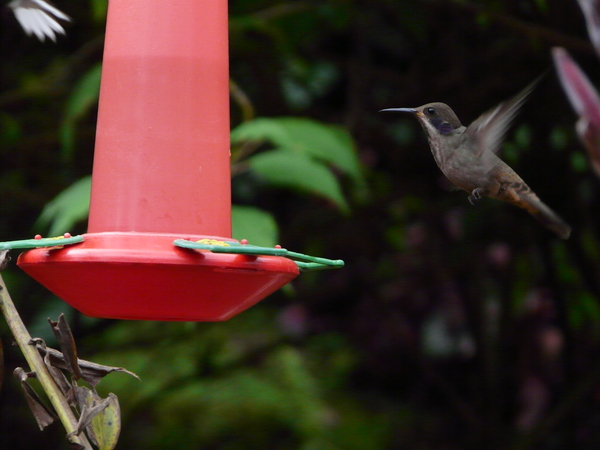Hummingbirds are fascinating to observe, with their small, brilliant bodies, fast flapping wings, and delicate beaks. In fact, it’s likely that you’ve never seen a hummingbird at rest, and you might just haven’t seen one that wasn’t busy flying and fluttering around.
Therefore the point is, where do hummingbirds go during the night?
Where Do Hummingbirds Sleep?

Hummingbirds like to sleep in trees. They prefer to seek protected areas in nearby trees that are not prone to chilly winds.
Although during the breeding season, female hummingbirds rest/sleep on their nests during the night. These nests are built on the terminals of vertical branches of a tree.
Hummingbirds dislike sleeping in small, enclosed areas, so they aren’t attracted to birdhouses, and you’ll seldom discover them mating near your house. They like to perch and nest in trees, particularly in places where they are not clearly seen.
In The Cold Season, Where Do Hummingbirds Sleep?
The majority of hummingbirds usually spend the winter in warmer climates. This is because there are no blooms to gather nourishment from throughout the wintertime. Throughout the winter, most species typically move to South America or the Caribbean.
Hummingbirds that do not migrate during the winter might sleep in their customary locations. Therefore, it will most probably be near a nice food supply, such as a hummingbird feeder in the backyard. If you spot a hummingbird throughout the winter season, maintain your nectar feeders well-stocked to ensure its survival.
What Types Of Trees Do Hummingbirds Sleep In?
Hummingbirds like deciduous trees such as oak, birch, and poplar to evergreens such as pine. These trees frequently have quite many branches as well as a lot of leaves, which creates a lot of covered spots for the hummingbirds to sleep in.
They want to make their nests in almost the same places, and they especially prefer to pick places where the branches fork.
Hummingbird nests are very difficult to find since they are small, well-camouflaged, and concealed deep inside the branches.
Do Hummingbirds Sleep Alone?

Yes, Hummingbirds are solitary species that prefer to sleep alone. They shouldn’t need to exchange body temperature for warmth because their capacity to enter torpor keeps them protected in cold conditions. Female hummingbirds should, obviously, sleep alongside their chicks while they are rearing them.
Having said that, it’s not uncommon for numerous hummingbirds that sleep in about the same tree or shrub or even on a similar branch.
They will, however, be spread out in these areas instead of taking shelter together as several bird species do. Even during migration, they do not form flocks like many other birds.
Do Hummingbirds Sleep Upright?
Indeed, hummingbirds do occasionally sleep upside down. Some people believe that all these birds look dead or sick, particularly because it takes a lot of time for them all to awaken and respond to environmental stimulation while they’re in torpor. Thus they may appear dead or sick when visitors try to rouse them.
It’s not exactly known why this occurs, however, some speculate that it’s simply due to their inability to keep poised on the tip of the branch when in torpor. Keep in mind that an upside-down hummingbird is not at risk and therefore should be left alone.
Do Hummingbirds Sleep In Their Nest?

Those female hummingbirds may hover above nests during the mating season.
To incubate their eggs, females would sleep inside the nests. When hatchlings and nestlings lack plumage, this assists warm them up.
Male hummingbirds, on the other hand, are uninterested in chicks and will never sleep together in the nest.
How Long Do Hummingbirds Sleep?
Hummingbirds usually fall into a slumber from dark till morning. That suggests a hummingbird could be in torpor for 8 to 16 hours. Of course, it will be affected by the weather.
Every night, most people sleep for about 12 hours. Exposure to sunshine causes the hummingbird’s hormones to be activated (corticosterone).
This leads them to gradually awaken from their slumber. This may require a hummingbird 20 to 60 minutes to awaken from a deep sleep.
Other elements that influence a hummingbird’s torpor duration include:
- Species type and size
- Getting away from predators
- Scarcity of food
- Protecting one’s territory (usually dominant males)
- Unfavorable weather conditions
How Often The Hummingbirds Sleep Each Day?

Hummingbirds would go into torpor once every day. Hummingbirds cannot have a fast sleep to relax because it takes much longer for them to revive from torpor.
When you think about it, recovering from sleep might take much longer than the sleep itself. Hummingbirds can die if they do not awaken from torpor. Furthermore, each day of torpor increases the hummingbird’s vulnerability to predatory animals.
Can A Hummingbird Sleep In The Day?
Because hummingbirds are busy throughout the day, the typical answer would be no. However, this does not rule out the possibility of seeing a hummingbird in torpor during the day. It isn’t a good omen if you encounter a bird in torpor throughout the day.
Typically, the bird has had to enter an urgent care torpor state in order to minimize the energy. This is common when food is limited or inclement weather makes searching for nectar too dangerous.
Conclusion
Hummingbirds are amazing tiny birds having unusual eating and resting routines. We seldom get to see them during the night, so their nocturnal habits are a continuous source of fascination for birders. Of course, like several other animals, their nighttime routine is very mundane. They simply pick a suitable place to sleep and relax.
Even if hummingbirds have quite mundane sleeping habits, we hope this article sheds some light on the topic, “where do hummingbirds sleep at night?”
FAQ
How long do hummingbirds sleep?
At sunset, hummingbirds go to sleep (torpor). Typically, this occurs around 30 mins after the sun sets at dusk.
When do hummingbirds get up?
When the sun rises, hummingbirds awaken.
Hormones cause a condition of awakening approximately 1 to 2 hours even before the sun shines. This allows them to go into torpor, which could also require nearly an hour for certain hummingbirds.
Last Updated on March 22, 2023 by Lily Aldrin
